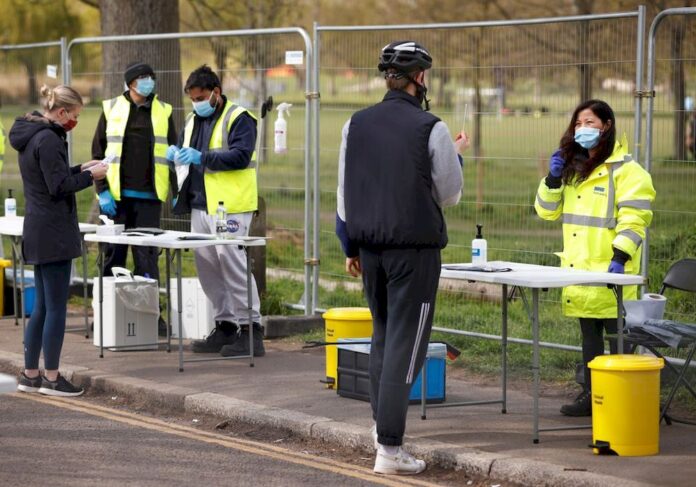People take coronavirus disease (Covid-19) tests on Clapham Common in London, Britain, April 14, 2021. — Reuters pic
LONDON, Nov 4 — Covid-19 prevalence in England rose to its highest level on record in October, Imperial College London said on Thursday, led by a high number of cases in children and a surge in the south-west of the country.
Nearly 6 per cent of school-aged children had Covid-19, the researchers found, although there was a drop in prevalence towards the end of the study’s period coinciding with the closure of schools for half-term holiday.
Despite that dip, researchers said rates had doubled in older groups compared to September, a concerning sign as the government races to give booster shots to the most vulnerable.
“We did see a doubling in that group, and clearly that’s the worry,” Paul Elliott, the Imperial epidemiologist who leads the programme, told reporters.
“It’s being driven from the young school age but it is going right across the whole population.”
Prime Minister Boris Johnson has re-opened England’s economy and is bidding to live with high levels of the coronavirus, saying that vaccinations have largely broken the link between cases and deaths compared to last winter.
The Imperial REACT-1 study estimated overall prevalence at 1.72 per cent based on swabs collected between Oct 19-29, compared to 0.83 per cent in September.
Elliot said that the figure was higher than the study’s previously recorded high in January, though he noted that the study had not been in the field last December, when last winter’s wave might have peaked.
The Imperial study found there was nearly a four-fold increase in prevalence in the south-west, the area impacted by an error at a private lab that resulted in an estimated 43,000 people wrongly being given negative PCR test results.
Elliott said that it was a “viable hypothesis” that the problems at the lab, run by a firm called Immensa, had contributed to the rise.
The study also found that 10.3 per cent of sequenced swabs were of the Delta subvariant AY.4.2, which is under investigation by UK health authorities due to its growth in recent weeks, but has not been shown to cause more serious illness or evade vaccines. — Reuters


